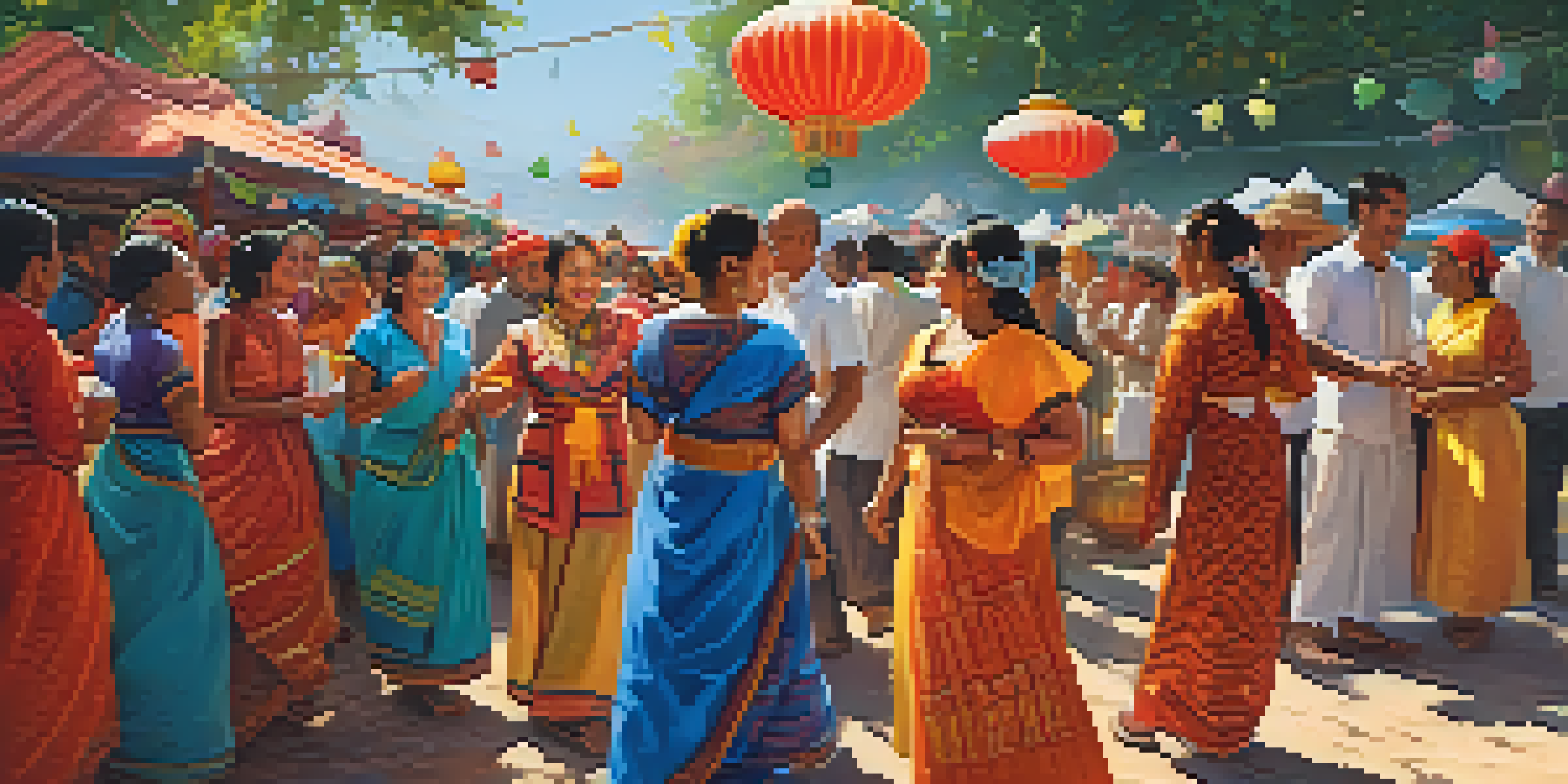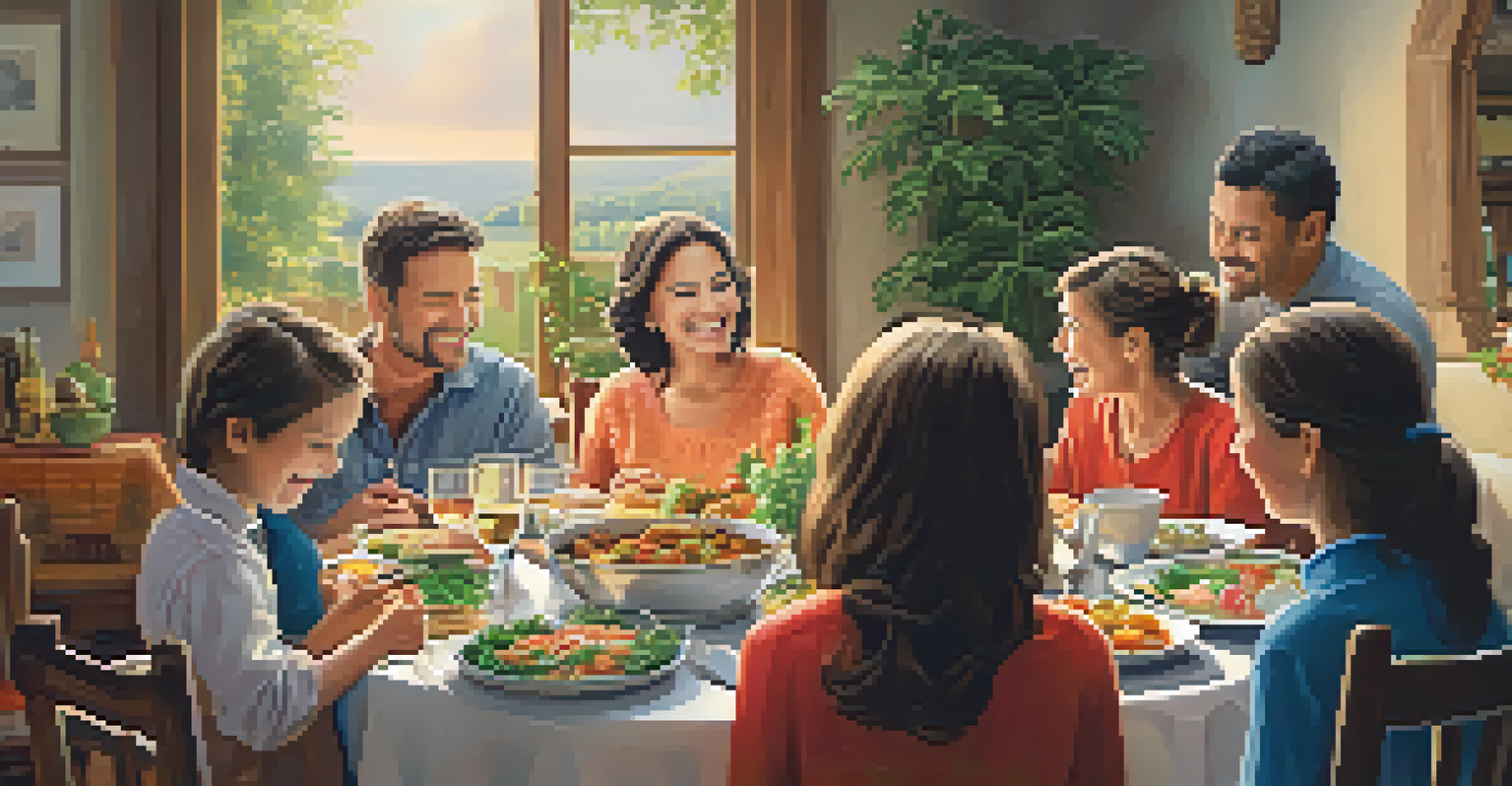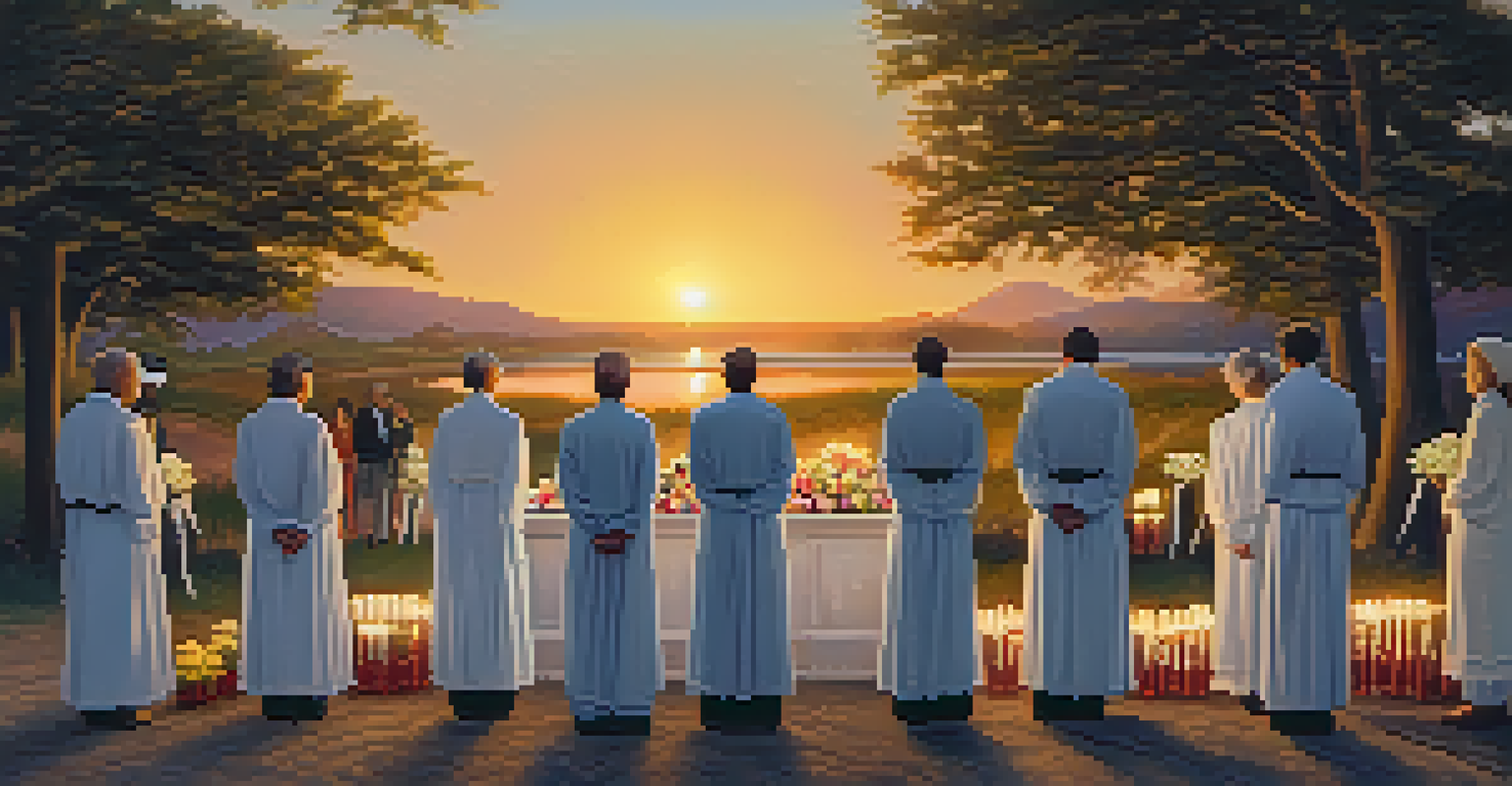Cultural Rituals: Connecting Us to Our Heritage and Identity

Understanding Cultural Rituals and Their Importance
Cultural rituals are practices that hold significant meaning within a society or community. They can range from annual celebrations, like festivals, to everyday habits that reflect shared values. These rituals often serve as a reminder of our collective heritage and help us feel connected to those who came before us.
Rituals are the formulas by which harmony is restored.
Think of cultural rituals as the threads in a tapestry, weaving together stories, beliefs, and traditions. Each ritual contributes to the overall picture of a community’s identity, showcasing its unique history and values. As we participate in these rituals, we strengthen our bonds with others who share similar backgrounds.
Moreover, engaging in cultural rituals can provide a sense of belonging. In a world that often feels fragmented, these practices help us establish our place within a larger narrative, reminding us that we are part of something greater than ourselves.
Rituals as a Reflection of Identity
Every cultural ritual offers a glimpse into the identity of a community. For example, the way a society celebrates weddings, births, or even mourning reflects its values and beliefs. These rituals often embody the essence of who we are and how we perceive our roles within society.

Take a traditional wedding ceremony, for instance. The customs, attire, and even the food served all tell a story about the couple's backgrounds and the heritage they carry forward. This is a moment where individual identities merge, forming a shared narrative that honors both families.
Cultural Rituals Connect Communities
Cultural rituals weave together shared values and traditions, fostering a sense of belonging and collective identity.
Thus, rituals become a stage where identity is both showcased and reinforced. They allow us to express who we are in a manner that is recognized and celebrated by our communities.
The Role of Rituals in Family Traditions
Family traditions often revolve around cultural rituals, creating a unique legacy that can be passed down through generations. These practices, whether it’s a special holiday meal or a yearly family reunion, help solidify family bonds and instill shared values. They serve as touchstones for younger generations, grounding them in their heritage.
Tradition is not the worship of ashes, but the preservation of fire.
Imagine a family gathering around the table for a holiday feast. Each dish has its own story, perhaps a recipe passed down from a grandparent. These moments allow family members to connect with their roots, promoting a sense of pride in their heritage.
In nurturing these traditions, families create a sense of continuity and stability. Children who grow up participating in these rituals often carry them into their own lives, further enriching the tapestry of cultural identity.
Cultural Rituals in a Globalized World
In today’s globalized society, cultural rituals are more important than ever. As people from diverse backgrounds interact, these rituals can serve as bridges, fostering understanding and respect. They provide a way to share traditions and learn from one another, promoting a sense of global community.
Consider how cultural festivals, like Diwali or Chinese New Year, attract people from various backgrounds who come together to celebrate. These events not only showcase the richness of different cultures but also invite others to participate, creating a shared experience.
Rituals Reflect Community Identity
The customs surrounding significant life events, like weddings and births, reveal the values and beliefs of a community.
However, it’s also vital to approach these rituals with sensitivity and respect. Understanding the origins and significance of a ritual ensures that we honor its true meaning while promoting inclusivity.
The Evolution of Cultural Rituals
Cultural rituals are not static; they evolve over time, reflecting changes in society. As communities grow and adapt, so do their rituals, often incorporating modern influences while still honoring traditional practices. This evolution allows rituals to remain relevant to contemporary audiences.
For example, many traditional ceremonies now include elements that reflect current societal values, such as inclusivity and diversity. This blending of old and new not only keeps rituals alive but also enriches them, making them more relatable to younger generations.
Thus, as we participate in cultural rituals, we not only honor our past but also shape the future of these practices, ensuring they remain vibrant and meaningful.
Rituals as a Means of Healing and Resilience
Cultural rituals often play a crucial role in healing and resilience, particularly in times of crisis. They provide a framework for expressing grief or loss and can offer comfort through community support. Engaging in these rituals can help individuals process their emotions and foster a sense of hope.
For instance, memorial services or communal gatherings after a tragedy can unite a community, allowing people to share their experiences and find solace in collective mourning. These rituals remind us that we are not alone in our struggles.
Rituals Adapt in a Global Society
As societies evolve, cultural rituals adapt to incorporate modern influences while maintaining their traditional core.
Furthermore, cultural rituals can serve as a source of strength, helping communities to navigate challenges together. By leaning on shared traditions, individuals can find resilience and a renewed sense of purpose.
The Future of Cultural Rituals
As we move forward, the future of cultural rituals will likely be shaped by the interplay of tradition and innovation. With technology and global connectivity, we have the opportunity to share and adapt rituals in ways that were previously unimaginable. This evolution can lead to new forms of expression that still honor foundational beliefs.
For example, virtual celebrations have become more common, allowing people to participate in cultural rituals across distances. This adaptation not only keeps traditions alive but also opens up opportunities for greater inclusivity.

Ultimately, the future of cultural rituals will depend on our willingness to embrace change while remaining rooted in our heritage. By doing so, we can ensure that these practices continue to connect us to our identity in meaningful ways.